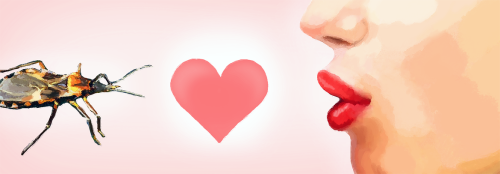#chagas disease
Happy Valentine’s Day, Yuck Factor and microbio fans!
To celebrate, we present you with an update on the genetic diversity of California kissing bugs (who aren’t as romantic as their name might imply…).
Trypanosoma cruzi, a protozoan parasite, can cause an onset of Chagas disease, a fatal cardiac disease in humans and dogs that has been referred to by PLOS as “The New HIV/AIDS of the Americas.” Triatome insects – who are more commonly known as kissing bugs, and who are found only in the Americas – transmit the parasite through their feces (after biting and sucking the blood of an infected animal or person), which can enter the newly-infected person or animal’s body through mucous membranes or breaks in the skin.
AlthoughT. cruzi has become well known in Latin America, there has been limited research regarding the spread and virulence of it in the USA. Therefore, less is known about the genetic diversity of the strains endemic to USA.
According to a recent Science Daily report, research on the prevalence of T. cruzi in California has suggested that “the apparent rarity of locally-acquired Chagas disease in the USA is unlikely due to any genetic difference in the infectious capabilities of the parasite.” This could mean that transmission has either decreased, or the disease has gone under-diagnosed in these regions, which in turn means there’s been a decreased awareness of it in the States.
Read up on Chagas at the CDC’s website, or read the full Science Daily article here.
(Image credit: https://www.nsfwcorp.com/dispatch/chagas/)
Post link

